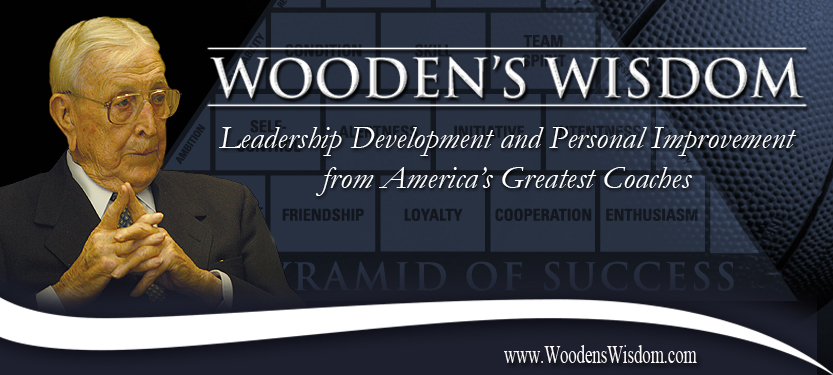
|
|
| Wooden's Wisdom - Volume 8 | Issue 348 |
| Craig Impelman Speaking | Championship Coaches | Champion's Leadership Library Login | |
|
MENTAL CONDITIONING - (WARD "PIGGY" LAMBERT - PART TWO) John Wooden's college coach at Purdue was Hall of Famer and Basketball Coaching Pioneer Ward "Piggy" Lambert. Coach Lambert believed the mental condition of his players was as important as their physical condition. He wanted his players free from worry on and off the court and viewed it as part of his responsibility to be proactive in helping his players in this regard.
In his book A Game Plan for Life: The Power of Mentoring, Coach Wooden described how his college coach Coach Lambert helped him and his teammates mentally:
"Coach Lambert never neglected to talk to us about our personal lives. He wouldn't probe if a topic was clearly sensitive, but he was attentive to anything that might be distracting us from fully concentrating on a game. If it was trouble in a class or trouble in a relationship, he just seemed to know what to ask. And feeling that the coach cared enough about us to find out and wanted to check with us to make sure everything was all right meant that we could relax a bit, knowing that there was someone on our side. I know he did it because he cared about us, first and foremost; but I think he got better performance out of us as an added benefit of giving us a chance to vent.
Coach Lambert always let us know that he genuinely cared for us. He would ask how our parents were doing and if there were any health concerns; he knew our girlfriends and our siblings by name. I remain convinced to this day that compassion like that—sincerely caring for your players and maintaining an active interest in their lives, concerns, and motivations—is one of the most important qualities a coach can have."
Coach Lambert wrote Practical Basketball in 1932, one of the first "bibles" of the game (a 243 page textbook). In his book Coach Lambert discussed the importance of coaching the mental conditioning of his players:
"It has been previously said that, in close contests of evenly matched teams, the game of basketball is a mental fight. Proper mental training must be given by the teacher or coach. Mental stability and control must be preached to the boys. They must understand that all that can be expected .of them is that they perform up to their capability regardless of the success of the other team. When the mental courage of a player is destroyed, he is indecisive. If the mind is not aggressive, the drive in the legs is gone. Experience teaches us to recognize ailments of physical condition, but a close study of each individual is necessary to learn the method by which he may attain aggressiveness of mind. There are many psychological factors which influence the condition of mind."
In addition to the technical aspects of basketball, John Wooden and Piggy Lambert were committed to coaching mental conditioning.
How do you coach the mental conditioning of your team members?
Yours in Coaching, Craig Impelman
|
Character of The Happy Warrior Who is the happy Warrior? Who is he William Wordsworth Longfellow (1770 to 1850)
|
|
For more information visit www.woodenswisdom.com |
|
© Copyright 2026 WoodensWisdom.com | # of Times Wooden's Wisdom Issues Opened: 7,859,805
Hosting & Design by:EverydayWebDesign.com